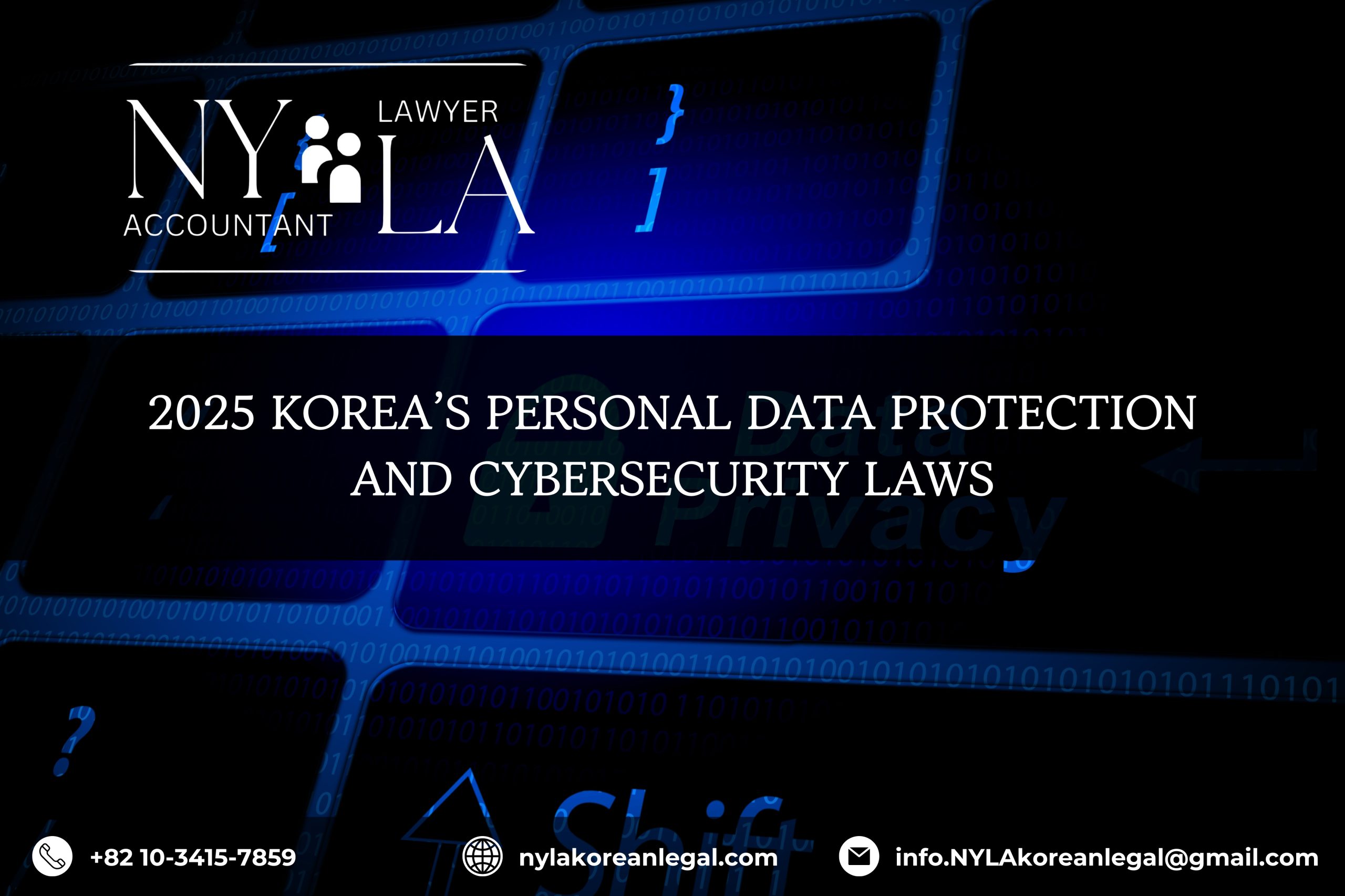Summary
I. Legal Basis
- Constitution of South Korea, Article 17: Guarantees the right to personal privacy.
- Personal Information Protection Act (PIPA): The general law governing most aspects of personal data processing.
- Sector-specific laws: Include the Credit Information Act, Location Information Act, Electronic Financial Transactions Act, Network Use and Information Protection Act, and the Critical Information Infrastructure Protection Act.
- Supplementary laws: Such as the Public Data Act and the Framework Act on Data Industry Development.
These laws were significantly amended in 2023, with supplementary decrees issued in 2024, and have been in stable enforcement since 2025.
II. Personal Data Protection Law (PIPA and Sectoral Laws)
1. Fundamental Principles and Scope
PIPA applies to most activities involving the processing of personal data — from collection, storage, and analysis to domestic and cross-border transfers. A key feature is that South Korea requires explicit consent from the data subject.
Example: An e-commerce business must notify and obtain prior consent if it wants to use a customer’s email address for advertising purposes.
Sector-specific laws take precedence only when there are specific provisions.
Example: Banks must comply with the Credit Information Act for financial data, while telecom providers must follow the Location Information Act when collecting GPS data.
2. Data Collection and Use
Businesses are only allowed to collect the minimum amount of data necessary for the stated purpose. If the intended use expands (e.g., from processing orders to analyzing customer behavior), additional consent must be obtained.
PIPA also requires businesses to design and publish a clear privacy policy on their website or app so customers can easily access it.
3. Cross-Border Data Transfers
This is particularly crucial for Vietnamese businesses with branches or partners in South Korea. If personal data of Korean customers is transferred to Vietnam, the company must demonstrate that Vietnam offers an equivalent level of data protection or sign standard contractual clauses with the recipient.
If these requirements are not met, authorities may ban the transfer or impose penalties.
4. Data Subject Rights
Individuals have the right to:
- Access and request a copy of their personal data.
- Request correction of inaccuracies.
- Request deletion or deactivation of data when it is no longer needed.
- Withdraw consent at any time.
Example: A customer using an online healthcare service can request the deletion of their medical records if they no longer use the service.
5. Obligations of Organizations
Businesses must appoint a Data Protection Officer (DPO), establish internal procedures, implement technical measures such as encryption, firewalls, and two-factor authentication. In case of a data breach, in addition to fines, businesses may also be liable for compensation to affected individuals.

III. Cybersecurity and System Protection Laws
1. Network Use and Information Protection Act
This law focuses on the responsibilities of tech, telecom, and online service providers. They must prevent malware and cyberattacks, implement warning and incident response systems. Example: If an e-commerce platform is hacked, it must notify users within a legally defined timeframe — hiding the incident is prohibited.
2. Critical Information Infrastructure Protection Act
Applies to sectors such as electricity, water, transportation, healthcare, and banking — the backbone of society. Companies must invest in stringent cybersecurity systems. Example: If the power grid is attacked, the impact could be nationwide. Therefore, the law requires disaster recovery plans.
3. Electronic Financial Transactions Act
Banks, e-wallets, and fintech firms must deploy systems to detect suspicious transactions and monitor and prevent fraud. Example: If a customer’s account suddenly initiates a large foreign transaction, the system must issue an alert and take verification measures.
4. Oversight Mechanisms
Government regulators have the authority to conduct surprise inspections, request reports and issue corrective orders. Businesses face not only administrative fines but also service suspensions for serious violations.
IV. Key Updates from 2023–2025 and Recommendations
1. Key Updates
- Stricter rules on cross-border data transfers.
- Mandatory data breach notifications within a legally defined period (usually 24–72 hours depending on the case).
- Higher accountability: Businesses must prove they are compliant — verbal assurances are not enough.
2. Practical Recommendations for Businesses
- Regular data audits: Know what data you collect, how long it’s stored, and who it’s shared with.
- Transparency with customers: Publish a clear and understandable privacy policy. Avoid hiding terms in “fine print.”
- Contracts with partners: If using cloud services, include strict data security and liability clauses.
- Employee training: Many breaches are caused by human error (e.g., clicking phishing emails).
- Incident response plan: Establish a response team, response scenarios, and contact lists.
V. Conclusion
South Korea’s personal data protection and cybersecurity laws in 2025 are more than just legal requirements — they represent a “trust standard” between businesses and customers.
For Vietnamese businesses operating in South Korea, it’s essential to understand that:
- Data protection = safeguarding reputation.
- Legal compliance = avoiding financial and legal risks.
- Investing in systems and people = long-term competitive edge.
In the global business environment, understanding and complying with data laws not only ensures a stable presence in Korea but also offers a competitive advantage in other markets.
VI. About NYLA – Korean Legal Office

■ NYLA – Your Trusted Legal Partner in Korea
At NYLA, we understand that the success of foreign businesses in Korea requires not only a solid business strategy but also reliable legal support. With a team of experienced Korean attorneys and legal professionals, NYLA provides tailored legal services for companies, investors, and individuals operating or planning to establish a presence in Korea.
We support our clients throughout the entire business journey with comprehensive services, including:
- Legal consultation on company establishment, taxation, and immigration;
- Advice on commercial real estate, franchising, and product distribution;
- Support in human resources, marketing, and business strategy.
In addition to legal advisory, NYLA also represents clients in civil litigation cases related to business, labor, marriage, family, and inheritance to ensure their rights and interests are fully protected.
■ Contact NYLA

If you’re a foreign business or individual looking for a reliable legal partner in Korea, NYLA is here to help. We are committed to delivering effective, practical, and personalized legal solutions for every client.
With a proven track record of assisting hundreds of international clients, our team is equipped to help you navigate complex legal challenges—whether it’s commercial disputes, contract issues, or foreign investment guidance.
Don’t let legal matters hold you back. Let NYLA be your trusted guide in the Korean market.
■ Get in touch with NYLA for expert legal support
| Website: https://nylakoreanlegal.com/
FB: https://www.facebook.com/nyla.koreanlegal Tiktok: https://www.tiktok.com/@nylakoreanlegal Youtube: https://www.youtube.com/@NYLA-xd8qx Email: info.NYLAkoreanlegal@gmail.com SĐT: +82 10-3415-7859 |
 |






















































